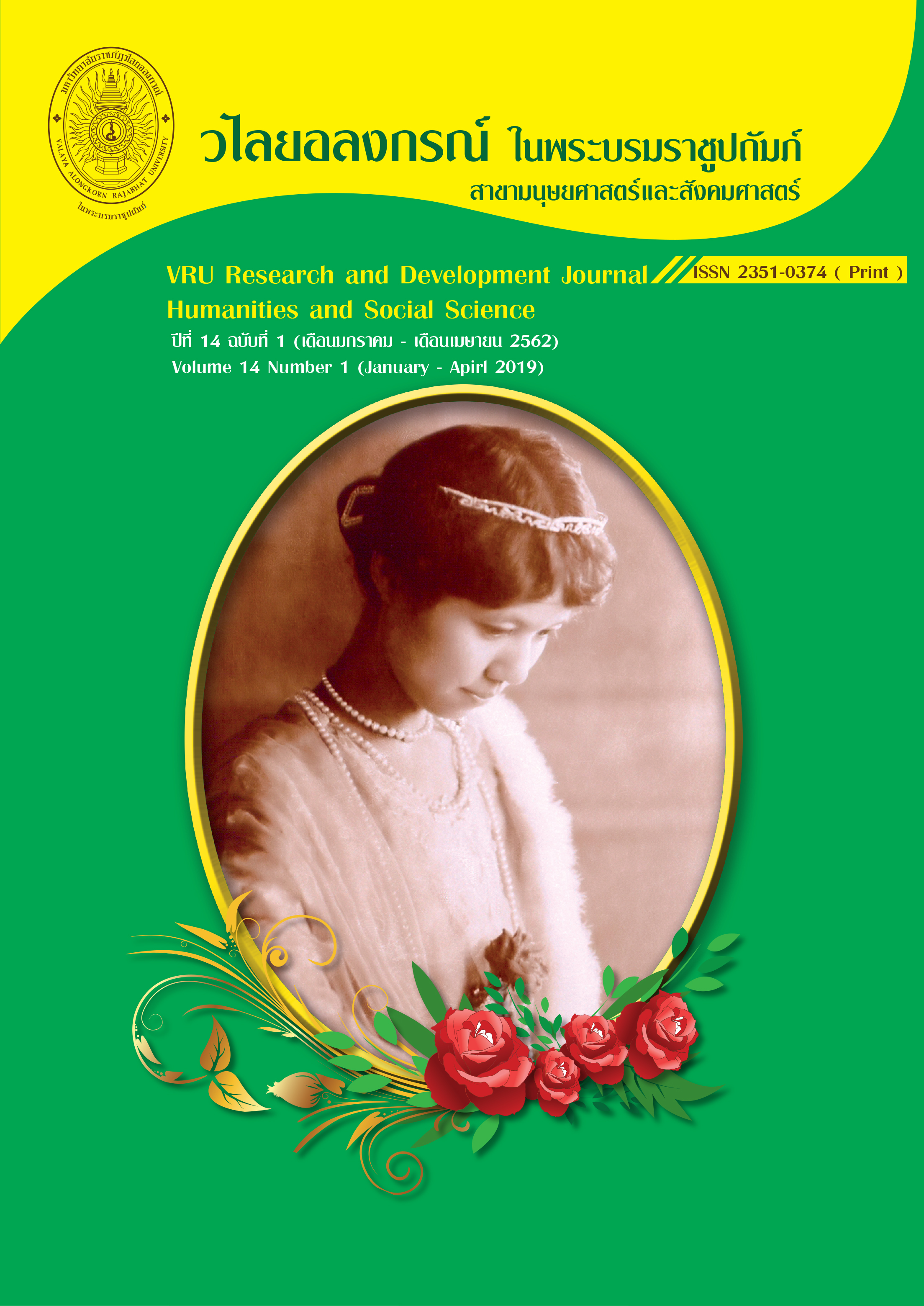THE DEVELOPMENT OF EXPERIENTIAL MODEL TO ENHANCE ENGLISH FOR COMMUNICATION SKILLS FOR EARLY CHILDHOOD
Main Article Content
Abstract
The purpose of this research was to study the basics and development the Experiential Model for enhancing English communication skills for early childhood and to study the effects of the model to their achievement. The samples in this study were one class of 5-6 years old, kindergarten students of the Demonstration School of Valaya Alongkorn Rajabhat University under the Royal Patronage. The 34 students in the second semester of the academic year 2017 were selected by purposive sampling and experimented with the experiential model. The data obtained from observing behavior while experiencing was analyzed by using Content Analysis. Consequently, the descriptive summary was reported and the English listening and speaking assessment for early childhood communication was built. Data were analyzed by means of the mean and standard deviation of the scores from the tests of One Group Pretest - Posttest Design.
The research found that teachers of an early childhood education realized the importance and needs of improving English communication skills in an early childhood. Teachers should focus on learning management by using authentic experiences. The developed model consisted of 5 components; principle, objective, content, experience process and evaluation. After the implementing the model, the experimental group had a higher average in posttest than the time they took the pretest.
Article Details
ลิขสิทธิ์บทความวิจัยที่ได้รับการตีพิมพ์เผยแพร่ในวารสารมนุษยศาสตร์และสังคมศาสตร์ วไลยอลงกรณ์ ในพระบรมราชูปถัมภ์ ถือเป็นกรรมสิทธิ์ของคณะมนุษยศาสตร์และสังคมศาสตร์ มหาวิทยาลัยราชภัฏวไลยอลงกรณ์ ในพระบรมราชูปถัมภ์ ห้ามนำข้อความทั้งหมดหรือบางส่วนไปพิมพ์ซ้ำ เว้นแต่จะได้รับอนุญาตจากมหาวิทยาลัยเป็นลายลักษณ์อักษร
ความรับผิดชอบ เนื้อหาต้นฉบับที่ปรากฏในวารสารมนุษยศาสตร์และสังคมศาสตร์ วไลยอลงกรณ์ ในพระบรมราชูปถัมภ์ เป็นความรับผิดชอบของผู้นิพนธ์บทความหรือผู้เขียนเอง ทั้งนี้ไม่รวมความผิดพลาดอันเกิดจากเทคนิคการพิมพ์


